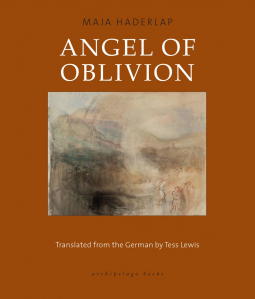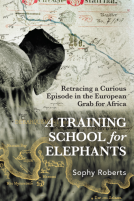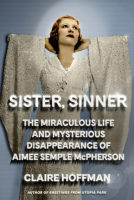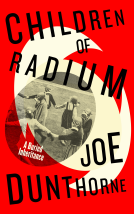
Angel of Oblivion
by Maja Haderlap
This title was previously available on NetGalley and is now archived.
Send NetGalley books directly to your Kindle or Kindle app
1
To read on a Kindle or Kindle app, please add kindle@netgalley.com as an approved email address to receive files in your Amazon account. Click here for step-by-step instructions.
2
Also find your Kindle email address within your Amazon account, and enter it here.
Pub Date Aug 30 2016 | Archive Date Jun 27 2016
Archipelago Books | Archipelago
Description
The novel tells the story of a family from the Slovenian minority in Austria. The first-person narrator starts off with her childhood memories of rural life, in a community anchored in the past. Yet behind this rural idyll, an unresolved conflict is smouldering. At first, the child wonders about the border to Yugoslavia, which runs not far away from her home. Then gradually the stories that the adults tell at every opportunity start to make sense. All the locals are scarred by the war. Her grandfather, we find out, was a partisan fighting the Nazis from forest hideouts. Her grandmother was arrested and survived Ravensbrück.
As the narrator grows older, she finds out more. Through conversations at family gatherings and long nights talking to her grandmother, she learns that her father was arrested by the Austrian police and tortured - at the age of ten - to extract information on the whereabouts of his father. Her grandmother lost her foster-daughter and many friends and relatives in Ravensbrück and only escaped the gas chamber by hiding inside the camp itself. The narrator begins to notice the frequent suicides and violent deaths in her home region, and she develops an eye for how the Slovenians are treated by the majority of German-speaking Austrians. As an adult, the narrator becomes politicised and openly criticises the way in which Austria deals with the war and its own Nazi past. In the closing section, she visits Ravensbrück and finds it strangely lifeless - realising that her personal memories of her grandmother are stronger.
Illuminating an almost forgotten chapter of European history and the European present, the book deals with family dynamics scarred by war and torture - a dominant grandmother, a long-suffering mother, a violent father who loves his children but is impossible to live with. And interwoven with this is compelling reflection on storytelling: the narrator hoping to rid herself of the emotional burden of her past and to tell stories on behalf of those who cannot.
Advance Praise
"A heart-wrenching story" - Peter Handke
"Haderlap writes in a clear yet poetic tone, in which time is a 'serene glacier' that crushes everything, all that the young protagonist at first finds wonderful and unchangeable, in its path." - Der Spiegel
"The strength of Haderlap's novel is that it stretches far back in time, in order to make the present recognisable." - Paul Jandl
"By telling her grandmother's story, the narrator finds her own, unmistakeable language, which speaks against the general urge to forget." - Deutschlandradio
Available Editions
| EDITION | Other Format |
| ISBN | 9780914671466 |
| PRICE | $18.00 (USD) |
Featured Reviews
 Denise W, Reviewer
Denise W, Reviewer
Angel of Oblivion seems to be two books in one: a coming of age story narrated by an unnamed child growing up in Slovenia/Austria some time after WWII, and the more memoir-like story of the politicization of a woman poet who lives sometimes in Vienna, and sometimes in the same setting that she does in the first part of the book. The publisher indicates that the novel is based on the life of the author.
As a very small child, the narrator is more attached to her grandmother than to either of her parents. Her father was with the partisans during the war. Tortured by the Nazis when only ten, he has become a sullen, angry man who is not much of a father or husband. His father died in a concentration camp, and his mother survived Ravensbrook by hiding within the camp until the end of the war. Only his mother seems to have any real effect on his behavior. The girl is sent to the taverns to get him to come home, which he does only when she tells him Grandma sent her. Both father and grandmother seem to despise the girl’s mother, for a reason that is not clear to the little girl.
Grandma and Father talk in great detail about the horrors of the war, both for partisans who lived and died in the wilderness, and for those who survived the camps. My understanding at the beginning of the book was that the mother somehow disgraced the family. As the girl grows older, she listens to these stories, which form a kind of memory for her. She is also witness to similar stories told by neighbors and relatives. She tries to love her father, feeling empathy for what he has had to endure, but his drunken suicidal rages separate him from every family member.
What was new to me was learning that Slovenia was annexed by one nation after another. Sometimes a part of Austria, where schoolchildren were forced to speak German, then part of Yugoslavia under the Soviets, Slovenia finally became an independent nation after the fall of the Berlin wall. The Slovenians were persecuted by the Nazis and the Austrian Nazi sympathizers, tortured, beaten and sent to camps when their family members were thought to be allied with the partisans. They were primarily Catholic, and their religion permeated their daily lives. Many did not survive the camps, and those who did were scarred physically and emotionally.
Against her father’s wishes, the girl is sent to a secondary school far from home, where she is a resident student throughout the school week, returning home only for weekends. It is here that she first begins to understand that the German speakers disdain the Slovenian children. She attends classes late in the afternoon because the Slovenians share the school buildings with the German-speaking children. Because of language differences, she is ghettoized within the school.
A good student and a strong-willed child, she succeeds academically, and is able to go to Vienna for university. There she becomes a poet who is fluent in both languages, but writes poems only in Slovenian. When she returns home on vacations, she finds she doesn’t fit in any more. But she is aware of the history of her people and highly critical of the way they have been treated.
For the first 2/3 of the book, I was captivated by this plucky child and her brave, outspoken Grandma. I found their characters easy to identify with. And the feelings of a small girl who witnesses her father’s drunken deterioration was spot on. The last third of the novel, however, became overtly didactic. The narrator, now a grown woman, speaks poetically at times, but for the most part tells without showing. I felt it suffered from the lack of that small child’s perspective. I found myself underlining large portions of this part of the book, however, for the insight it shows for oppressed minorities can be easily applied to the events of today. Over all, the story of the little girl and her family is very good. The portion of the book narrated by the woman she becomes felt more like an essay than a novel. I would recommend it, however, for those who, like me, were unaware of the suffering of the Slovenians in WWII. It puts another face to the very grim period we know today as the Holocaust.
 Meghan Rose A, Reviewer
Meghan Rose A, Reviewer
As I was taking the cows to pasture, a policeman came and hung me from the walnut tree.
Books by poets are always more about sound than anything else to me. Maja Haderlap is a poet; I can tell even in translation from German. Angel of Oblivion is all sound, rhythm, cadence. But then it's transient too. We can float only until we realize that not much happens in a book of sound.
There are stories. Our narrator grows up, a Carinthian Slovene in Austria, within sight of the Yugoslav border. Post-war, her community is a melting pot of troubles, othered by the German-speaking Austrians for their Slovenian dialect and their group's partisan resistance of the Nazis (and hence any collaborating Austrians) during the Second World War. Everyone is troubled. The traumas of the older generation (concentration camp survivors, PTSD suffering former partisans, torture victims) leech into the lives of the young. You can think of it like genetic memory. You can think of it like poison from both nature and nurture.
And they tell stories. The partisans meet again and again as our narrator grows to tell their stories again and again. Nothing is forgotten. Nothing is let go. Poems smuggled out of Auschwitz published in minority Slovenian Austrian journals. Who betrayed whom. Who fought valiantly. Who was taken. Who survived. Who didn't. Telling ourselves stories in order to live.
Our narrator goes to Bled, as we all should do.
Rhythm, sound, fragments. Don't forget, but don't expect a linear plot line and a traditional story either.
Angel of Oblivion by Maja Haderlap went on sale August 16, 2016.
I received a copy free from Netgalley in exchange for an honest review.


















